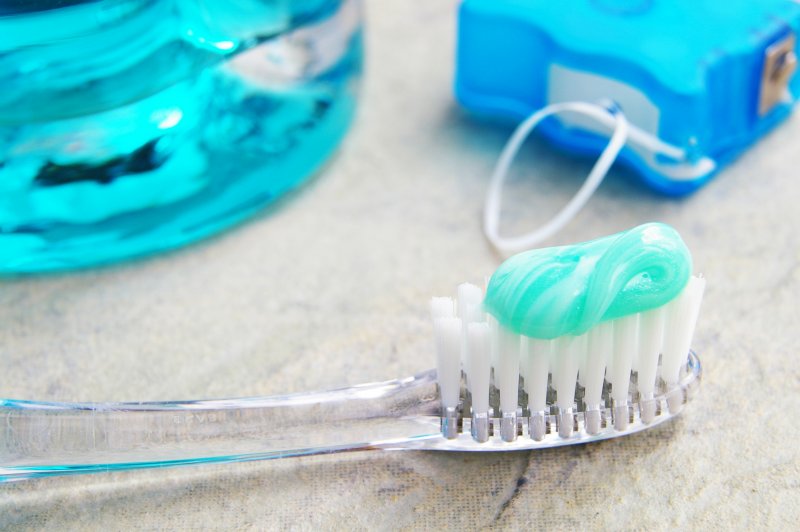
How often do you need to buy toothpaste along with other oral hygiene products? Depending on your habits, you might be using them up much faster than you need to, and consequently you may be paying for these items more often than you should. Furthermore, you may be forcing yourself to make extra trips to the store – and that’s a problem during a time when social distancing is so important. A dentist in Kittanning can tell you exactly how much toothpaste, dental floss, or mouthwash is enough to keep your teeth and gums clean and healthy; use the following guidelines to help you conserve these items and save yourself time and money.
Toothpaste
Do you cover the length of the toothbrush’s head with your toothpaste? That’s actually much more than you really need. In fact, using an excessive amount of toothpaste could be a detriment to your oral health; the tastes and sensations could make it feel like your mouth is perfectly clean even if you’ve actually missed a significant amount of plaque. Smaller amounts of toothpaste make it easier to recognize the spots that you’ve overlooked.
Adults only need a blob of toothpaste the size of a pea. Young children (specifically toddlers) require even less; the American Dental Association states that they should only receive rice grain sized smears. That way, there’s little chance of them suffering from intestinal problems should they swallow the toothpaste.
Dental Floss
It’s important that the pieces of floss you break off during each oral hygiene session aren’t too long or too short. You definitely don’t want to use more than what’s necessary, but a too-small piece increases the risk of putting bacteria that has already been removed back in your mouth. The ideal length is about 18 to 24 inches. Remember that when holding the piece, most of its length should be wrapped around your middle fingers.
Mouthwash
The generic amount of mouthwash to use is about 20 milliliters (or in other terms, 2/3 of a fluid ounce or four teaspoons). Of course, the specific brand that you use is likely to have specific instructions of its own. Most of them should also have some kind of guidance tool (such as a mark on the inside of the bottle’s cap) that will help you measure precisely the right amount. Use this guide every time; by no means should you ever “eyeball” the amount you think you need.
If you’re still unsure about the way you use the above products, it may be worth asking, “What does the dentist near me recommend?” Feel free to get in touch with them about any concerns you have about your oral hygiene habits and what improvements you can make so that you’re using the products you buy as efficiently and effectively as possible.
About the Author
Dr. Ray Voller graduated from the University of Pittsburgh School of Dental Medicine in 1980 and is currently a Master of the Academy of General Dentistry. Since founding his practice, Voller Dentistry, he has always strove to bring his patients excellent dental care, especially when it comes to preventive treatments. If you have questions about the oral hygiene products you use, you can get in touch with him through his website or by calling (724) 543-4948.
